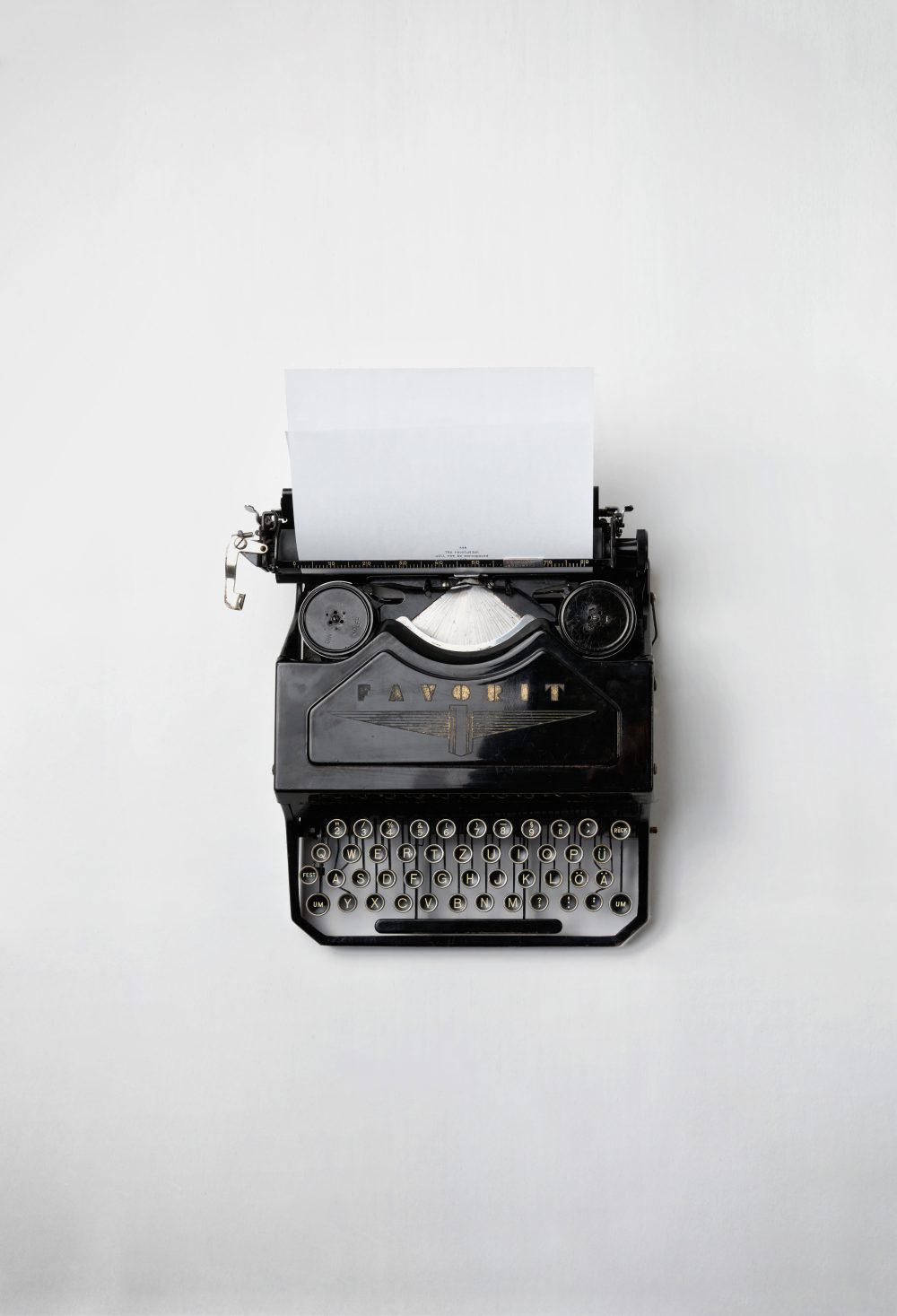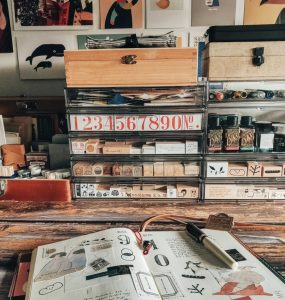This morning, I woke up to a world enveloped by a thick white fog.
I stood behind the porch, still half awake, staring at the dim sky and the hazy rows of the neighbors’ flat. For a second, I thought my vision was blurry. Feeling a bit cold, I went to the kitchen and made myself a cup of tea; sipping it while sitting on a blanket by the window, watching the fog fading away ever so slowly.
As layers upon layers of fog melted away, giving way to the sun, I felt as if a certain heaviness had left my mind—parting an invisible curtain and enabling me to see things with a certain clarity.
I had been feeling a bit ‘foggy’ the whole week.
I had just completed a 21-day road trip two weeks before. Upon arrival, the first thing I wanted to do was just chilling at home for a few days, doing nothing to compensate for hours upon hours of being constantly on the road. But this ‘compensation period’ went longer than the original plan.
For the next few days in the past week, my heart was heavy.
Every morning, I needed to really whip myself to sit in front of my working desk—and actually work (and on most days, I started very late). After wrapping things up and meeting the deadline, I threw myself on the couch with a gray cloud hovering above my head. I, halfheartedly, flipped the pages of some books, played a Podcast I didn’t listen to and scrolled my social media feed mindlessly.
Probably it was something like a post-road-trip syndrome. Or a mid-thirty crisis. Or a PMS. But I started questioning why I am still doing the things I’m doing now, about where all these things are heading towards, about why I have so many options but cannot seem to pick and stick to one.
My future seemed far and foggy, and I couldn’t seem to get this feeling out of the way.
Until I started writing.
I had a difficult start at first.
It was one of those days when you sat in front of your computer, wanting to write but couldn’t seem to start. It was one of those instances when you had a pen in hand but your hand refused to move an inch. It was one of those moments when you had so many things to tell, to share, to explore; but you were staring at a blank page on your notebook instead.
The good thing was that years after years of struggling with this had taught me how to trick it.
Here are the 5 tricks I use to start writing (even when I don’t know how to begin).
The goal?
To fill up that page in your screen or notebook, so you don’t have to stare at a blank space any more.
ONE.
THE MAGIC OF FREE WRITING
Set an alarm for 3, 5, 7, or 15 minutes, then go crazy. Just write anything that crosses your mind about the thing you want to write about. Don’t stop. Don’t think. Just be honest. Following the advice of Natalie Goldberg, start with: I want to write about… and keep going. If the things you write turn out to be strange, chaotic or don’t make sense, you’re doing it right. Keep going. If you’re feeling like going too far off-track, write another line of I want to write about… and keep writing.
TWO.
QUESTION EVERYTHING
What do you want to write about? Instead of thinking about how to start writing that particular thing, ask yourself some questions. Who is this character? Why do I want to write about this? Why is his/her story important? Why I want a happy ending? List down at least 9 questions, set your timer for 3 minutes per question, then start answering them one by one.
THREE.
GENIUSES TALK TO THEMSELVES
Grab your phone and record yourself talking to yourself about this thing you want to write. Imagine as if you were sharing a piece of your mind with a trusted friend. Imagine this friend encouraging you to keep talking. The friend will ask: “Why? Tell me more. What is it about? Can you explain it a bit more?” Record for 10, 15, 20, or 30 minutes. As long as you need. Done? Transcript this ‘conversation’ into the paper.
FOUR.
PLAY SURGEON
Take your favorite book, article, or blog post. Read it and dissect it like a surgeon. Break the paragraphs and start digging for the structure. For instance, paragraph 1 – starts with how she missed the train (disaster!); paragraph 2 – she told the story of why she missed the train (back story); paragraph 3 – a dialogue showing her emotions about almost being late (conversations). You can also break it into something more simple like opening – how it begins – body/message – how it ends – closing. When you’re finished, you should see a certain skeleton showing how your favorite piece has been structured. Borrow that structure, and start writing according to this skeleton.
FIVE.
POST-IT, POST-IT ON THE WALL
This might be the greatest of them all. Get a bunch of Post-It notes. On each one, start writing one simple sentence about anything that comes to mind; related to the piece you want to write about. For example, Post-It 1, the food I eat | Post-It 2, the taste of the food | Post-It 3, the location of the restaurant | Post-It 4, the ambiance of the restaurant | Post-It 5, the waiter said something funny, and there you go. Basically, write down each sentence/scene you have in mind about the thing you want to write about. When you’re done, stick the Post-It notes on the wall. Arrange and rearrange the notes, swapping the order to get the best flow from the beginning to the end. When you’re satisfied, begin writing from the first note.
That day, I didn’t write about the things I want to write about.
I didn’t write a blog post or an article or a short story.
I wrote about my life.
About how I feel. About the questions swirling inside my mind. About my heavy heart. About my fear of having to navigate my way to a foggy future.
I went for trick 1 and 2 because naturally, they seemed like a good fit at that exact moment. And they helped me. As I layered sentences upon sentences on the page of my notebook, I could feel my burden getting lighter and lighter. Something had found its way out of my heart, out of my mind, out of the darkness of my being: right into the page.
I once wrote about the reason why I chose writing as my medium of expression (or about why writing chose me). It’s strange, though, how in some particular crossroads of my life there were always moments when I was fed up with writing. I felt as if writing ‘consumed’ too much out of me. At times, I was tired of it, feeling like I’ve had enough.
And I always find this somewhat ironic.
Because even though at certain times I was repeatedly tired of writing, writing never seemed to get tired of me. Even when I was ready to give it up, it had never given up on me. Somehow, writing always finds its way through the dark, and like a patient and passionate lover, lures me back to fall in love with it; over and over again.











5 Responses
Thank you. I like to write But starting it (or even naming my page) seems a challenge. ?
Yes, there are times like that and there are times when you write and you just cannot stop 😛 Thanks for reading and leaving your trace! *hugs*
beautiful!
Thank you :’)
I did this often. I have so may things in my mind when I’m not having my phone or laptop or notebook with me. Then I got to open a blank page, and it keeps blank. The words just swirling inside my head. Don’t know where to start, don’t know which one to start. I might start to use a recorder (just like three) as I’m starting talking (and mumbling) to myself alot. Gonna let you know IF I tried any of the tips. Thank you! :*
but most of the time i know i’m just lazing around, not wanting to force my mind to think about anything.T___________T